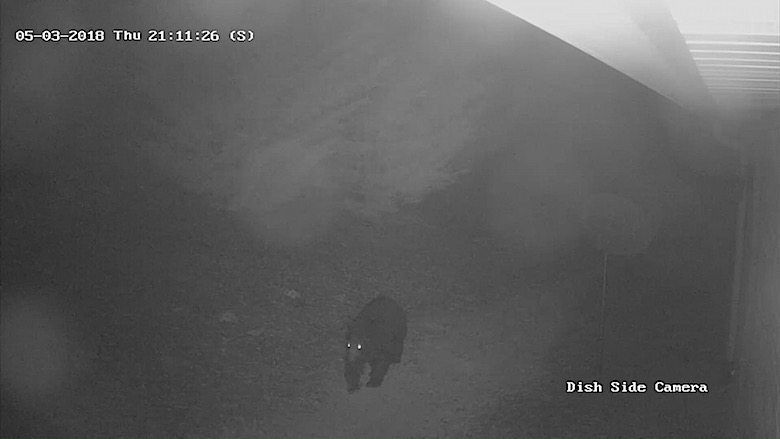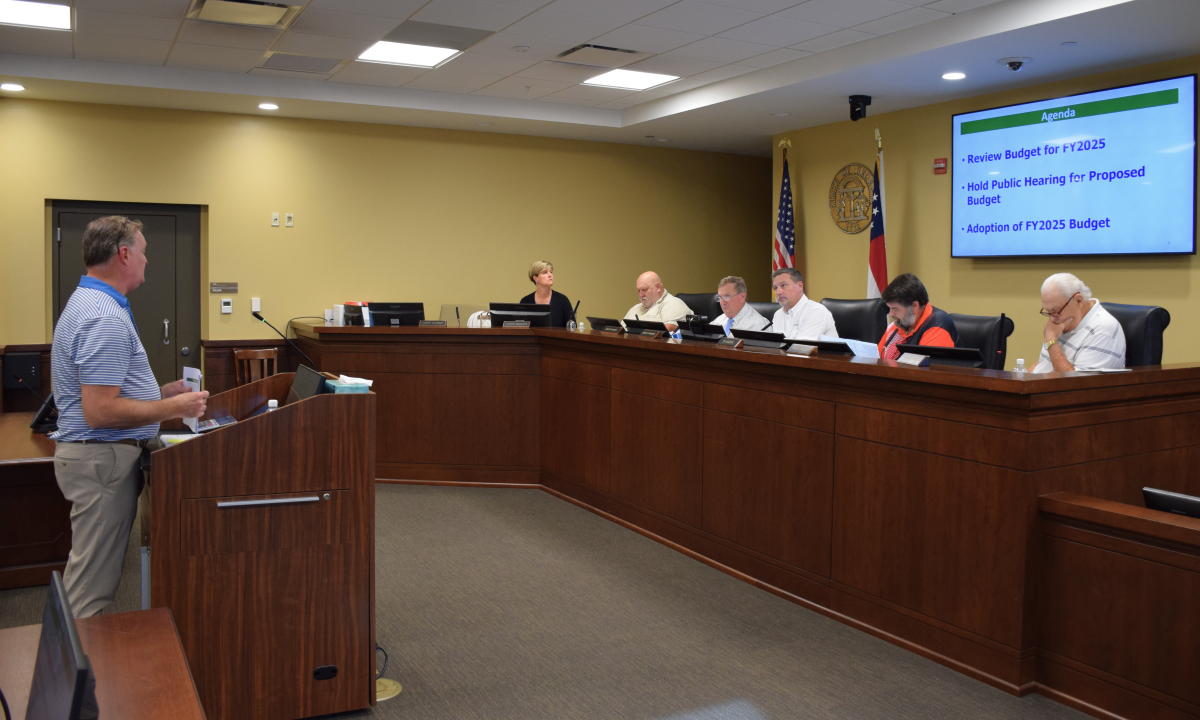
The Department of Natural Resources is now attempting to trap and relocate a bear that has been causing a nuisance in a Habersham County neighborhood.
It’s the latest in an ongoing saga that began back in February for homeowner Barry Lipsitz. That’s when Lipsitz first spotted the bear frolicking in his backyard.
The bear disappeared for awhile but returned last week.
“He tore up some of my trees and bushes in the back yard and ate them,” Lipsitz says. “He then went to my concrete bench, stood on the bench and ate my rose bush.”
READ Black bear sighting rise as spring approaches
Lipsitz says he tried to scare away the bear with loud noises. “Pots and pans did not scare him at all,” he says. When he called DNR he says, “I couldn’t get past the front desk.”
“Bigger and more aggressive”
As his frustration grew, so did his concern. Lipsitz was alarmed by how much bigger and more aggressive the bear had become since February. The bear visited Lipsitz’s house three times last week. All of its previous visits were at night, but on Wednesday, May, 2, the bear came out before dark.
“My wife won’t come out of the house. Our neighbor won’t let her dogs out,” he says.

Lipsitz says the bear ripped off the porch screen on a neighbor’s house on Old Athens Highway and repeatedly tossed a garbage can at another neighbor’s door. “The woman in the back of me up on the hill said it’s in her yard and she’s worried,” he adds.
Scare the bear
Lipsitz and his neighbors live on the outskirts of Cornelia near the intersection of Old Cleveland and Old Athens Highways. The area is populated by a subdivision, farm houses, and the Green Mountain Village apartment complex. It sits just a mile up the road from Level Grove Elementary School and a half-mile from South Habersham Middle.
“We feel that everyone is telling us that if we scare him he will go away,” says Lipsitz. “We are scared he might turn on us and attack us.”
When Now Habersham shared Lipsitz’s concerns with DNR Regional Supervisor Scott Bardenwerper on Monday, he immediately responded by contacting Lipsitz and arranging a site visit.
During the visit, DNR set a trap. Now, Lipsitz is just waiting for the bear to find it.
“We just want DNR to relocate it before he does hurt someone or a car hits him or someone decides to shoot it.”
No cause for alarm
Bardenwerper says DNR does not, as a general rule, relocate bears. Black bears are indigenous to the area and “there are bears everywhere in every community.”
He urges homeowners who are having problems with bears to put up their bird feeders and outdoor pet feeders if they have them and to manage their garbage. Dirty grills also attract bears. “If it smells like something to eat, they’ll get into it,” he says.
If clearing the yard of possible food sources doesn’t work, DNR can help homeowners try to scare away bears. The agency loans out scare pistols and provides rubber buck shot that can be used to deter the bear but not harm it.
“If it’s a nuisance that continues and people are doing what they’re supposed to do then we can come relocate them,” Bardenwerper says. “The big thing is (to) not be alarmed.” He says there’s never been a bear attack in Georgia. And while that doesn’t mean it can’t happen, he stresses, “You leave them alone, they’ll leave you alone.”
For useful tips on bear safety and management, click on the links below.
Bears Live in Your Neighborhood
Updated 5/8/18@7:15am







